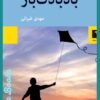بادبادک باز
کتاب بادبادک باز نوشتهی خالد حسینی به زندگی پسری به نام امیر در میان آشوبهای کشور افغانستان میپردازد. در این کتاب روابط انسانی به خصوص دوستی دو پسر بچهی افغان محور اصلی داستان هستند. حسینی به واسطهی این رمان تا به امروز به جوایز ادبی متعددی دست یافته است.
در رمان بادبادک باز (The Kite Runner) اتفاقاتی بسیاری رخ میدهد اما داستان اصلی به رابطهی میان دو دوست به نامهای امیر و حسن میپردازد. امیر و حسن دوستانی بسیار صمیمی هستند و با هم بزرگ شدهاند اما امیر پسر ارباب است و حسن خانهزاد آنهاست. همین فاصلهی طبقاتی خواه ناخواه بر رابطهی این دو کودک هم تأثیر خود را نشان میدهد و خالد حسینی (Khaled Hosseini) در فصلهای نخستین کتاب به زیبایی رابطهی خاص این دو پسربچه را توصیف میکند.
حسن پسری بسیار مهربان است و دل پاکی دارد و به عنوان یک دوست برای امیر فداکاریهای بسیاری میکند و همین موضوع به غم و اندوه نهفته در سرتاسر داستان میافزاید. از طرف دیگر، این رمان از مصائب و سختیهای یک کشور و مردمانش میگوید.
در این رمان تأثیرگذار راوی امیر یا همان پسر ارباب است او که اکنون در آمریکا به سر میبرد و زندگی خوبی دارد به خاطرات قدیمی خود سرک میکشد و به خصوص به سالهای کودکی خود زمانی که دوستی مانند حسن در زندگی خود داشت که حاضر بود به خاطر پسر ارباب دست به هر اقدامی بزند.
فیلمی اقتباسی از روی این کتاب بینظیر ساخته شده است. به شما پیشنهاد میکنیم پس از مطالعهی کتاب حتماً نگاهی به این فیلم هم بیندازید، هر چند این فیلم فرسنگها از منبع اصلی خود فاصله دارد و ضعیفتر است اما به خودی خود اثری قابل قبول و تماشایی محسوب میشود.
امیر، پسر یک تاجر ثروتمند کابلی و از قبیله ی صاحب قدرت پشتون ها است. حسن، خدمتکار و همراه همیشگی امیر، از قبیله ی طرد شده و فقرزده ی هزاره ها است. رابطه ی غیرمعمول این دو شخصیت، با تصمیم امیر به ترک دوستش در خلال تنش ها و ناآرامی های قومی، مذهبی و سیاسی سال های پایانی پادشاهی افغانستان، از هم می پاشد و این دو از هم بسیار دور می افتند. اما رابطه ی میان این دو شخصیت، آن قدر قوی است که امیر، برای جبران اشتباهات گذشته در قبال تنها دوست حقیقی اش، مسیری بسیار طولانی را بازمی گردد. رمان بادبادک باز، داستان به یادماندنی و تأثیرگذار یک دوستی نامحتمل بین پسری ثروتمند و فرزند خدمتکار پدرش را به شکلی استادانه روایت می کند؛ داستانی که در کشوری رو به نابودی و اضمحلال اتفاق می افتد و به قدرت دانش، تاوان خیانت، امکان رستگاری و عشق، ایثار و دروغ های میان دو پدر و پسران شان می پردازد. رمان بادبادک باز، رمانی غیرمعمول و قدرتمند است که به یک اثر کلاسیک منحصربه فرد و دوست داشتنی تبدیل شده است.
کتاب بادبادک باز
در توضیحات پشت جلد کتاب آمده است: بادبادکباز داستاني گيرا و احساسي از خيانت و رستگاري است. دريچهاي به دنيايي نو با نام زندگي افغانها که عجيب، فريبنده و در عين حال آشناست. خالد حسيني با ايجاد تعادل چشمگير مابين وضوح و قدرت، مرزهاي شالودهسازي و قصهگويي را درمينوردد. برترين نقطه قوت اين داستان دستمايه تقدير و عدالت و فايق آمدن خير بر شر به رغم تمامي عوامل بازدارنده است.
The Kite Runner is the story of Amir, a Sunni Muslim, who struggles to find his place in the world because of the aftereffects and fallout from a series of traumatic childhood events. An adult Amir opens the novel in the present-day United States with a vague reference to one of these events, and then the novel flashes back to Amir’s childhood in Afghanistan. In addition to typical childhood experiences, Amir struggles with forging a closer relationship with his father, Baba; with determining the exact nature of his relationship with Hassan, his Shi’a Muslim servant; and eventually with finding a way to atone for pre-adolescent decisions that have lasting repercussions. Along the way, readers are able to experience growing up in Afghanistan in a single-parent home, a situation that bears remarkable similarities to many contemporary households.
One of the biggest struggles for Amir is learning to navigate the complex socioeconomic culture he faces, growing up in Afghanistan as a member of the privileged class yet not feeling like a privileged member of his own family. Hassan and his father, Ali, are servants, yet at times, Amir’s relationship with them is more like that of family members. And Amir’s father, Baba, who does not consistently adhere to the tenets of his culture, confuses rather than clarifies things for young Amir. Many of the ruling-class elite in Afghanistan view the world as black and white, yet Amir identifies many shades of gray.
In addition to the issues affecting his personal life, Amir must also contend with the instability of the Afghan political system in the 1970s. During a crucial episode, which takes place during an important kite flying tournament, Amir decides not to act — he decides not to confront bullies and aggressors when he has the chance — and this conscious choice of inaction sets off a chain reaction that leads to guilt, lies, and betrayals. Eventually, because of the changing political climate, Amir and his father are forced to flee Afghanistan. Amir views coming to America as an opportunity to leave his past behind.
Although Amir and Baba toil to create a new life for themselves in the United States, the past is unable to stay buried. When it rears its ugly head, Amir is forced to return to his homeland to face the demons and decisions of his youth, with only a slim hope to make amends.
Ultimately, The Kite Runner is a novel about relationships — specifically the relationships between Amir and Hassan, Baba, Rahim Khan, Soraya, and Sohrab — and how the complex relationships in our lives overlap and connect to make us the people we are.










